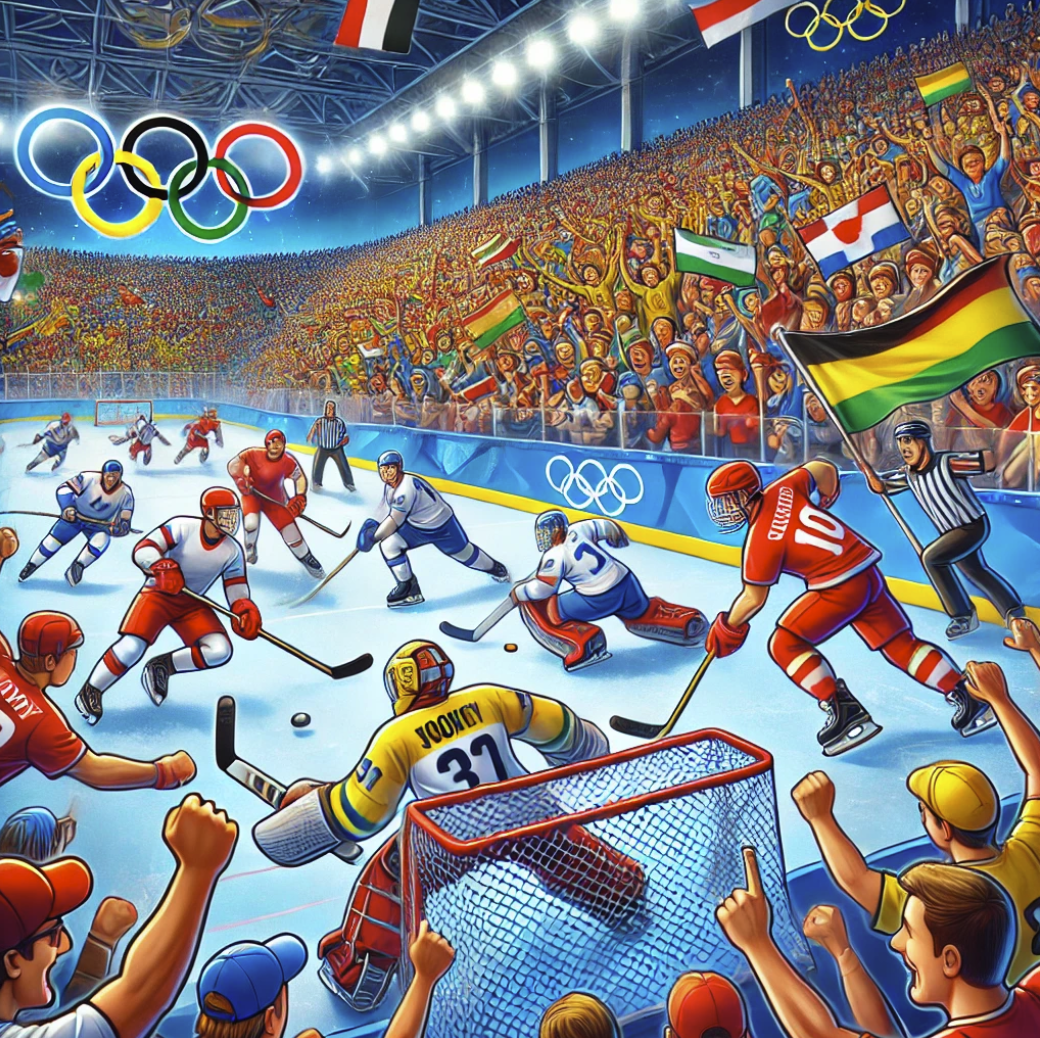Here’s a detailed list of the gold, silver, and bronze medal winners in men’s ice hockey at the Winter Olympics for each year:
- 1924 (Chamonix):
- Gold: Canada
- Silver: United States
- Bronze: Great Britain
- 1928 (St. Moritz):
- Gold: Canada
- Silver: Sweden
- Bronze: Switzerland
- 1932 (Lake Placid):
- Gold: Canada
- Silver: United States
- Bronze: Germany
- 1936 (Garmisch-Partenkirchen):
- Gold: Great Britain
- Silver: Canada
- Bronze: United States
- 1948 (St. Moritz):
- Gold: Canada
- Silver: Czechoslovakia
- Bronze: Switzerland
- 1952 (Oslo):
- Gold: Canada
- Silver: United States
- Bronze: Sweden
- 1956 (Cortina d’Ampezzo):
- Gold: Soviet Union
- Silver: United States
- Bronze: Canada
- 1960 (Squaw Valley):
- Gold: United States
- Silver: Canada
- Bronze: Soviet Union
- 1964 (Innsbruck):
- Gold: Soviet Union
- Silver: Sweden
- Bronze: Czechoslovakia
- 1968 (Grenoble):
- Gold: Soviet Union
- Silver: Czechoslovakia
- Bronze: Canada
- 1972 (Sapporo):
- Gold: Soviet Union
- Silver: United States
- Bronze: Czechoslovakia
- 1976 (Innsbruck):
- Gold: Soviet Union
- Silver: Czechoslovakia
- Bronze: West Germany
- 1980 (Lake Placid):
- Gold: United States
- Silver: Soviet Union
- Bronze: Sweden
- 1984 (Sarajevo):
- Gold: Soviet Union
- Silver: Czechoslovakia
- Bronze: Sweden
- 1988 (Calgary):
- Gold: Soviet Union
- Silver: Finland
- Bronze: Sweden
- 1992 (Albertville):
- Gold: Unified Team
- Silver: Canada
- Bronze: Czechoslovakia
- 1994 (Lillehammer):
- Gold: Sweden
- Silver: Canada
- Bronze: Finland
- 1998 (Nagano):
- Gold: Czech Republic
- Silver: Russia
- Bronze: Finland
- 2002 (Salt Lake City):
- Gold: Canada
- Silver: United States
- Bronze: Russia
- 2006 (Turin):
- Gold: Sweden
- Silver: Finland
- Bronze: Czech Republic
- 2010 (Vancouver):
- Gold: Canada
- Silver: United States
- Bronze: Finland
- 2014 (Sochi):
- Gold: Canada
- Silver: Sweden
- Bronze: Finland
- 2018 (PyeongChang):
- Gold: Olympic Athletes from Russia (OAR)
- Silver: Germany
- Bronze: Canada
- 2022 (Beijing):
- Gold: Finland
- Silver: ROC (Russian Olympic Committee)
- Bronze: Slovakia
Why Was Team Canada So Weak During the late-50s through the late-80s?
Canada’s perceived weakness in Olympic ice hockey from 1956 to 1988 can be attributed to several factors:
- Professionalism and Eligibility Rules:
- During this period, the International Olympic Committee (IOC) and the International Ice Hockey Federation (IIHF) maintained strict amateurism rules, which barred professional players from participating in the Olympics. This rule disadvantaged Canada, where many of the best players were professionals in the National Hockey League (NHL).
- Rise of the Soviet Union:
- The Soviet Union emerged as a dominant force in international hockey during this period. The Soviet players, although technically amateurs, were state-sponsored and trained rigorously, essentially functioning as full-time professionals. This gave the Soviet Union a significant edge over Canada, whose top players were in the NHL and therefore ineligible for Olympic competition.
- NHL Influence:
- The NHL was reluctant to release players for international competitions, including the Olympics, which were held in the middle of the NHL season. This further weakened Canada’s ability to field its best players for the Winter Games.
- Organizational and Strategic Issues:
- Canada struggled with organizational issues, including inconsistent management and lack of cohesive strategy. While other countries developed centralized programs and long-term training plans for international competitions, Canada’s approach was more fragmented.
- Policy and Leadership Changes:
- Changes in leadership and policy within Canadian hockey organizations during this period also affected performance. The lack of a unified vision and strategy led to inconsistent results on the international stage.
- Evolution of International Competitiveness:
- Other countries, particularly in Europe, improved significantly in terms of hockey skills, training, and tactics. Countries like Czechoslovakia, Sweden, and Finland invested heavily in their hockey programs, which led to increased competition and made it more challenging for Canada to dominate as it had in the early years.
The combination of these factors contributed to Canada not winning an Olympic gold medal in men’s ice hockey from 1952 until 2002. The lifting of the amateurism rule in the late 1980s and the eventual participation of NHL players in the Olympics starting in 1998 marked a turning point for Canadian hockey, leading to renewed success in subsequent Winter Games


